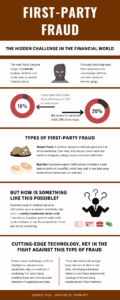Artificial Intelligence (AI) and
blockchain are two of the most disruptive technologies of our time. As we have mentioned on previous occasions, the COVID-19 pandemic has accelerated the transition towards an increasingly digital society. On this journey, these technologies are not just a key part of the future but also of two other
key aspects: a recovery that combines
resilience and sustainability and also the strengthening of
Europe’s technological sovereignty.
At least, this is what the vice president of the European Investment Bank (EIB),
Teresa Czerwińska, states in the introduction to a
report produced by the EIB in collaboration with the consultancy firm Oliver Wyman. The report was originally published in July 2021, but it has been republished again this summer. The report is based on a
survey of 100 European startups specialising in AI and blockchain and is supported by 18 in-depth interviews with said companies and another 19 interviews with agents in the financial market.
“All major economies in the world are racing to take the lead in the development and deployment of AI and blockchain technologies”, says the report. “
Europe, despite its scientific excellence, is lagging behind, especially on the financing front, where we only contribute 7% of annual global equity investments in these technologies”. In other words, for every 100 euros or dollars invested, just 7 come from Europe.
It is no surprise, therefore, that Czerwińska calls for “more firepower” for emerging startups to compete globally, as well as instilling investors with confidence and conviction
if Europe truly intends to be a “technological champion”. However, finance is not enough on its own. The report goes on to say, “we also need to strengthen and connect our ecosystems further so that we can translate brilliant ideas into commercial value better and faster”.
The report addresses various
bottlenecks that exist with respect to financing for these technologies, and they are divided into three sections:
supply,
market infrastructure and
demand. The first section identifies three bottlenecks: the limited availability of venture capital and private investments, the limited specialisation of EU venture capital funds in AI and blockchain, and the limited appetite for investing in AI and blockchain due to high upfront investment needs and a lack of knowledge and low visibility of commercial applications.
With respect to market infrastructure, the report only notes one significant bottleneck: the limited matching between SMEs and investors. And finally, turning to the demand side, the EIB report points to three key obstacles: the presence of a strong science base but limited valorisation-related R&D spending, the lack of a single European market (despite the fact that it is of a size comparable to the North American or Chinese market), and thirdly, the existence of a fragmented innovation ecosystem.




